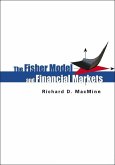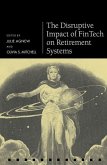Provides a comprehensive introduction to the subject of financial markets. Covers markets in central trading places like the New York Stock Exchange and the Chicago Board of Trade, and markets in non-central trading such as that in government bonds, foreign currencies, and over-the-counter stocks. Includes unique analyses of pricing of options and features, especially futures in Eurodollars. This is the comprehensive introduction to financial markets from an economic perspective. It assumes a basic understanding of economics. The authors cover both markets that trade in central locations like the New York Stock Exchange and the Chicago Board of Trade, and also markets that trade by phone , computer terminal, etc., like bonds, foreign currency and securities traded on over-the-counter market. Also included are options and future markets, and the authors present and unique way of analysing the prices of these instruments, especially the pricing of futures in Eurodollars.
The Economics of Financial Markets puts economics to work on the daily problems faced by investors, traders, speculators and brokers as they wrestle with increasingly diverse and complex financial markets. Drawing on data direct from the financial behavior of households, corporations, and governments, the authors show how accessible but rigorous economics can help in making sense of the financial markets (including those in equities, bonds, mutual funds, options and futures) and of the ways in which these markets are organized. The Economics of Financial Markets is for those who wish to look behind the daily financial headlines and understand what is driving the prices of bonds, stocks, options, futures and other instruments; how financial markets work; how to identify consistent patterns of market behavior; and how the complex jigsaw of institutions, financial intermediaries, trading places, speculators, hedgers, savers and investors fits together. It operates at that rare intersection of theory and practice where the study of intriguing patterns and phenomena can actually uncover profitable opportunities. The authors don't pretend that they have a secret formula or a sure-fire way to pick future winners in the financial race. The world is littered with the gravestones of "get rich quick" strategies. And there are enough books, both good and bad, on investments and investing. Instead, the authors' task is to make the reader better informed about both the patterns and paradoxes that underlie the twists and turns of financial markets and help turn the jargon of these unique markets from a barrier into a tool.
Hinweis: Dieser Artikel kann nur an eine deutsche Lieferadresse ausgeliefert werden.
The Economics of Financial Markets puts economics to work on the daily problems faced by investors, traders, speculators and brokers as they wrestle with increasingly diverse and complex financial markets. Drawing on data direct from the financial behavior of households, corporations, and governments, the authors show how accessible but rigorous economics can help in making sense of the financial markets (including those in equities, bonds, mutual funds, options and futures) and of the ways in which these markets are organized. The Economics of Financial Markets is for those who wish to look behind the daily financial headlines and understand what is driving the prices of bonds, stocks, options, futures and other instruments; how financial markets work; how to identify consistent patterns of market behavior; and how the complex jigsaw of institutions, financial intermediaries, trading places, speculators, hedgers, savers and investors fits together. It operates at that rare intersection of theory and practice where the study of intriguing patterns and phenomena can actually uncover profitable opportunities. The authors don't pretend that they have a secret formula or a sure-fire way to pick future winners in the financial race. The world is littered with the gravestones of "get rich quick" strategies. And there are enough books, both good and bad, on investments and investing. Instead, the authors' task is to make the reader better informed about both the patterns and paradoxes that underlie the twists and turns of financial markets and help turn the jargon of these unique markets from a barrier into a tool.
Hinweis: Dieser Artikel kann nur an eine deutsche Lieferadresse ausgeliefert werden.








